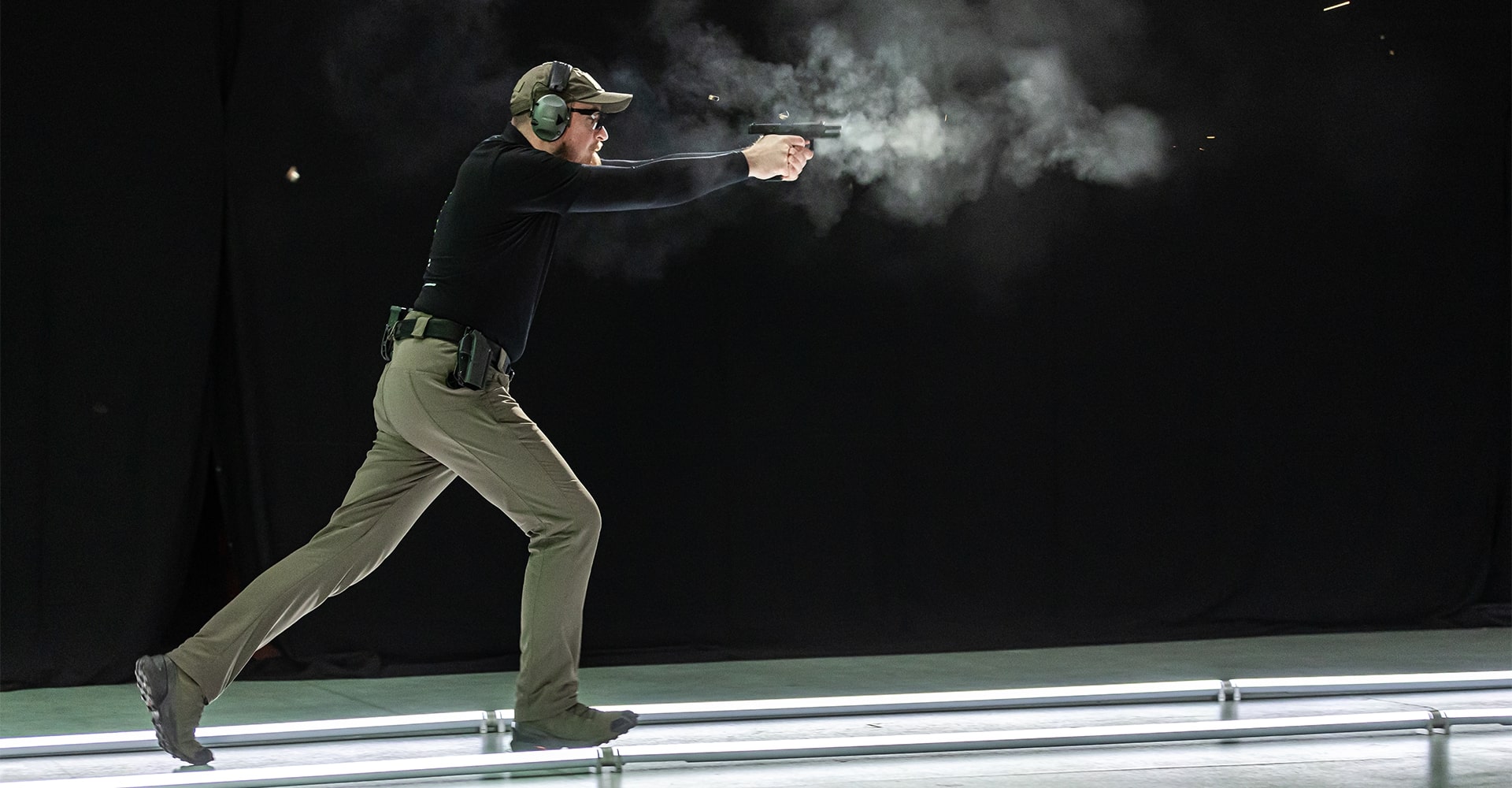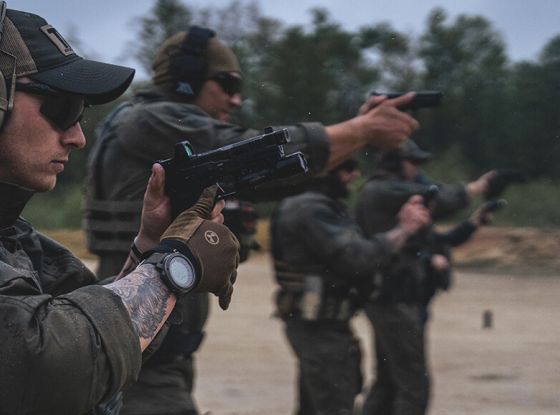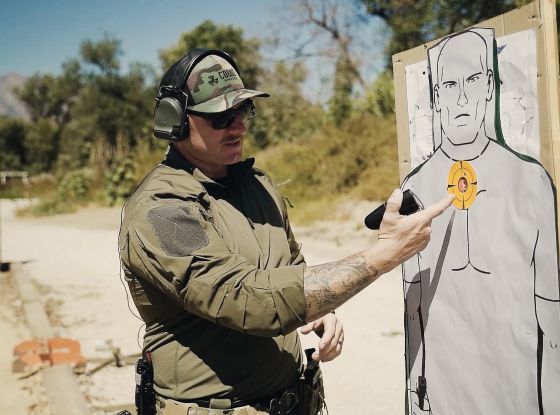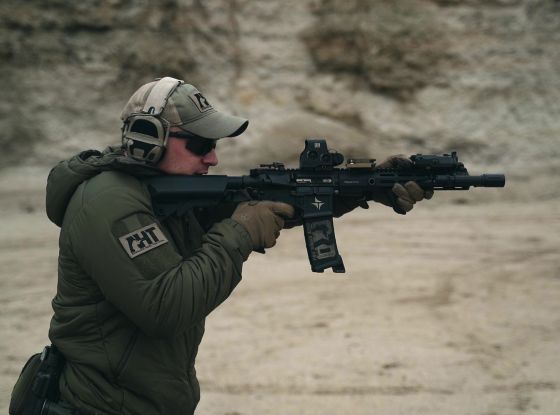In sports shooting, speed and precision rule. But ask any seasoned competitor, and they’ll tell you: the real advantage isn’t just in the gear. It’s in your head. It’s in how you train. And more than anything, it’s in the fundamentals.
In this blog post:
That’s exactly what we unpack in this episode of the UF PRO podcast with Paul Costa—a 19-year law enforcement veteran, instructor, and seasoned competitor. Paul brings a rare perspective to the table, blending real-world tactical experience with the demands of high‑level shooting sport. He shares what it takes to develop advanced shooting skills, apply them under pressure, and keep improving long after the basics are “learned.”
Here are the key takeaways—direct from the range.
Shooting Is a Mental Game
Anyone can pull a trigger. But under pressure—when there’s a clock ticking, eyes on you, and no margin for error—your mindset is what carries you.
Mental strength isn’t just helpful. It’s essential. Competitive shooting is equal parts skill and psychology. Your ability to stay calm, focused, and deliberate will influence your performance more than any single piece of kit.
That starts before you ever step onto the range. Breathing techniques, visualization, structured pre-stage routines—they all help regulate nerves. And when you make a mistake (because everyone does), resilience is what keeps you moving forward instead of spiraling.
The best shooters don’t pretend they won’t mess up. They train to recover quickly when they do.
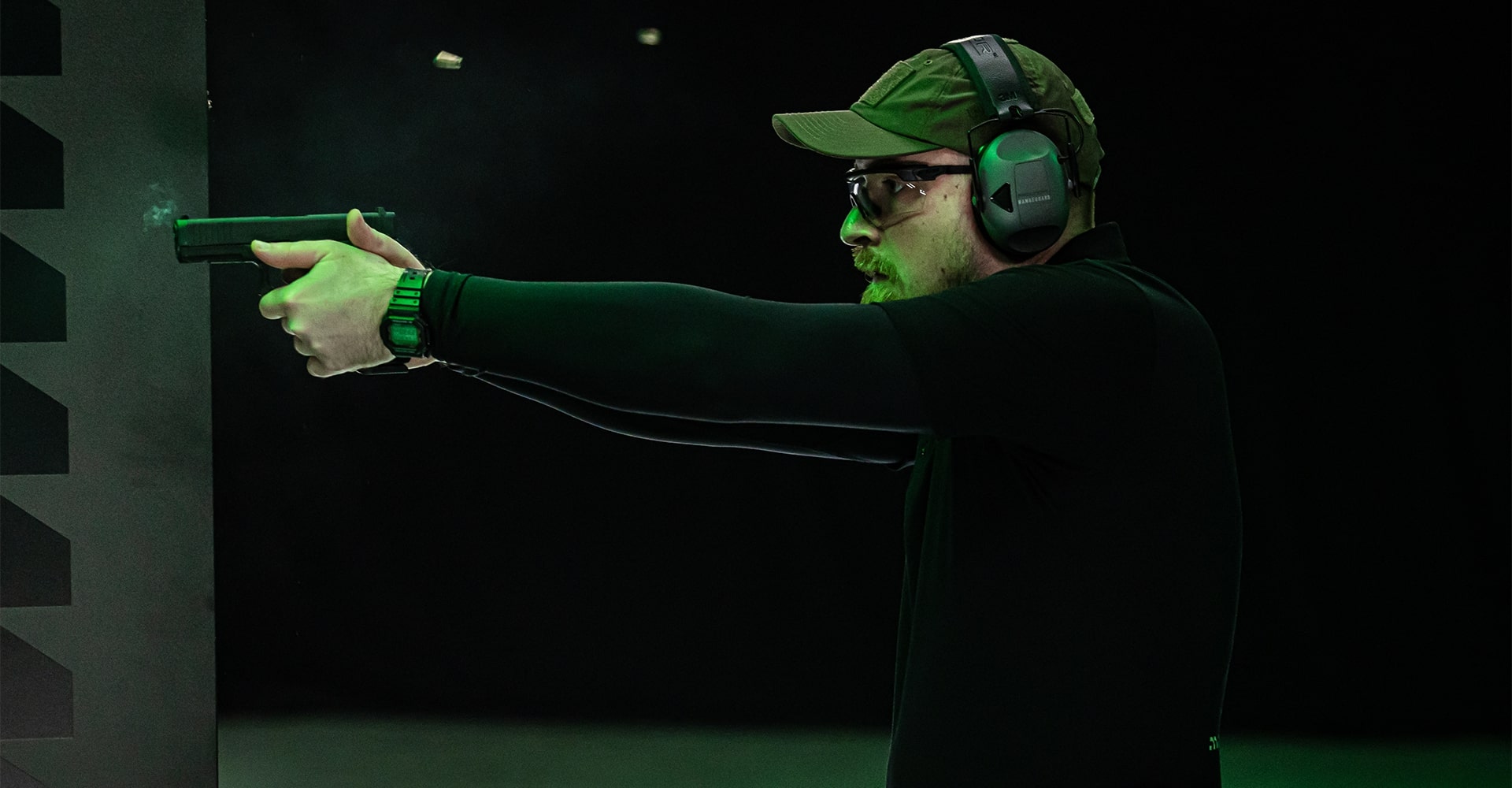
Preparation That Pays Off
Range time is important—but how you use it matters more than how much you get.
In shooting sport, deliberate practice beats random sessions every time. Dry fire drills, for example, might not look exciting, but they build solid mechanics—trigger control, sight alignment, muscle memory—without the distractions of noise or recoil.
Another often overlooked part of prep: visualization. Running through stages mentally before you shoot helps you stay a step ahead when the timer starts. And breaking down each course of fire beforehand lets you anticipate transitions, reloads, and awkward angles.
Just as important? Reviewing your performance after the fact. Whether you placed first or dead last, take the time to figure out why. Honest reflection turns mistakes into direction—and wins into benchmarks.
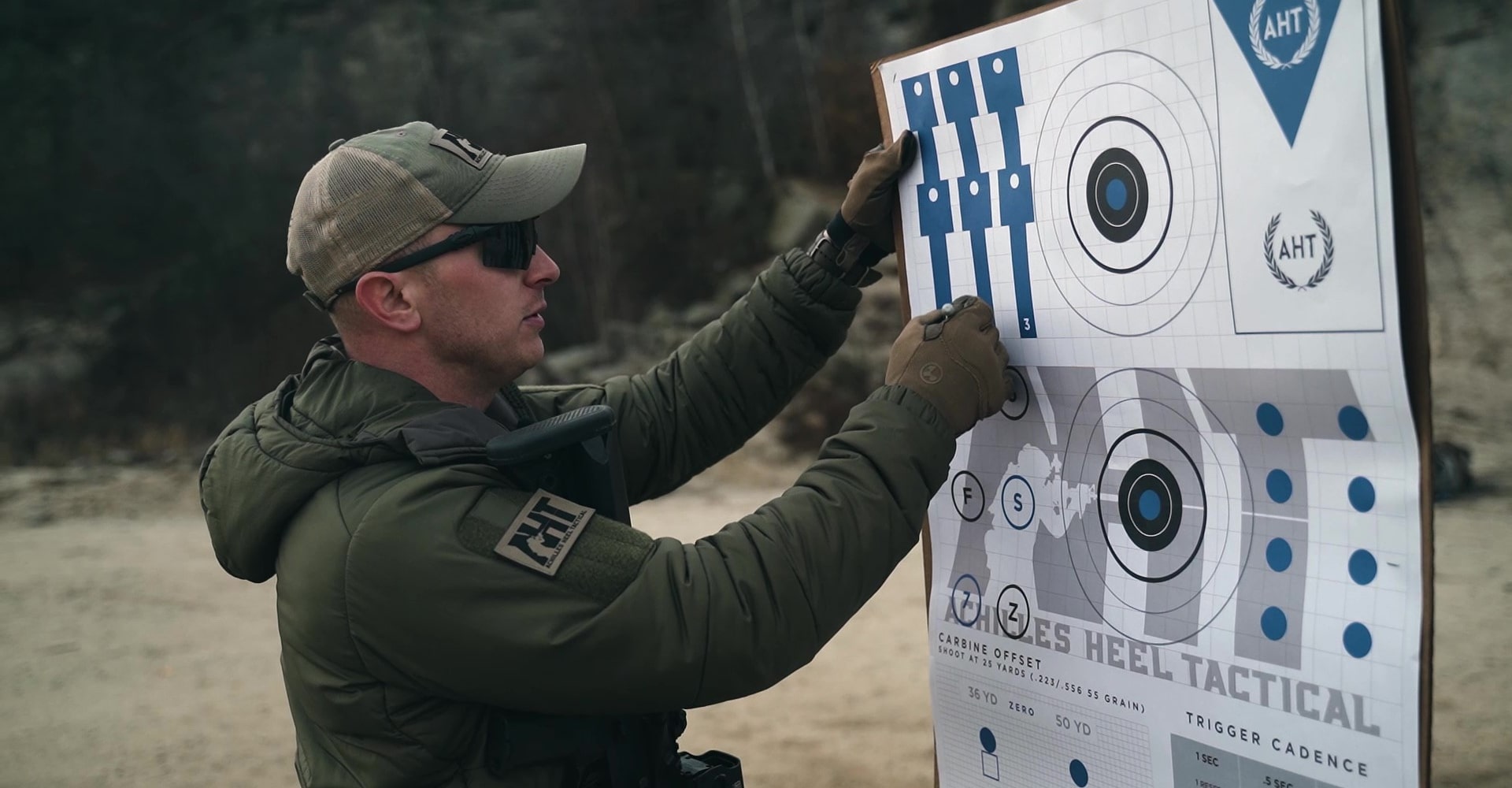
An interesting note: many of the shooting fundamentals and drills used in tactical rifle training directly support competitive sport shooting. Techniques developed for law enforcement and military scenarios overlap with what top sports shooters practice to improve accuracy and speed. For example:
- Mastering trigger control is crucial, as explained in our blog on trigger manipulation.
- Efficient reloads and handling common malfunctions, a staple of tactical training, also play a role in sport shooting success (reload mechanics guide).
- Smooth transitions between rifle and pistol—the essence of 3-Gun and similar sports—benefit from drills covered in our rifle-pistol transition post.
While the stakes and context differ—tactical shooting is about mission survival, and sport shooting is about competition—the fundamentals carry over and provide a strong foundation for both.
SUBSCRIBE TO UNLOCK OUR EXCLUSIVE CONTENT
Enter your email and get timely updates and relevant intel on tactical topics directly to your inbox.
You are signing up to receive updates via e-mail from which you can opt out at any time. Visit our privacy policy for more info.
Mastering the Basics—Over and Over Again
It might sound simple, but here’s the truth: fundamentals win matches.
It’s tempting to chase gear tweaks or new techniques when progress slows, but the shooters who consistently perform well are the ones who’ve nailed the basics—and revisit them regularly.
Here’s what matters most:
- Stance: The base for recoil management and stability. Learn more in our stance and grip fundamentals.
- Grip: Consistency here makes follow-up shots smoother and faster.
- Sight picture and alignment: Knowing where to focus—front sight, rear sight, or target—matters. Dive deeper in our sight picture and mechanical offset post.
- Trigger control: Smooth, controlled, and deliberate.
- Follow-through: Don’t just shoot and move. Stay with the shot, confirm, and reset.
Even top-tier competitors go back to these regularly. Fundamentals aren’t a starting point—they’re the whole foundation.
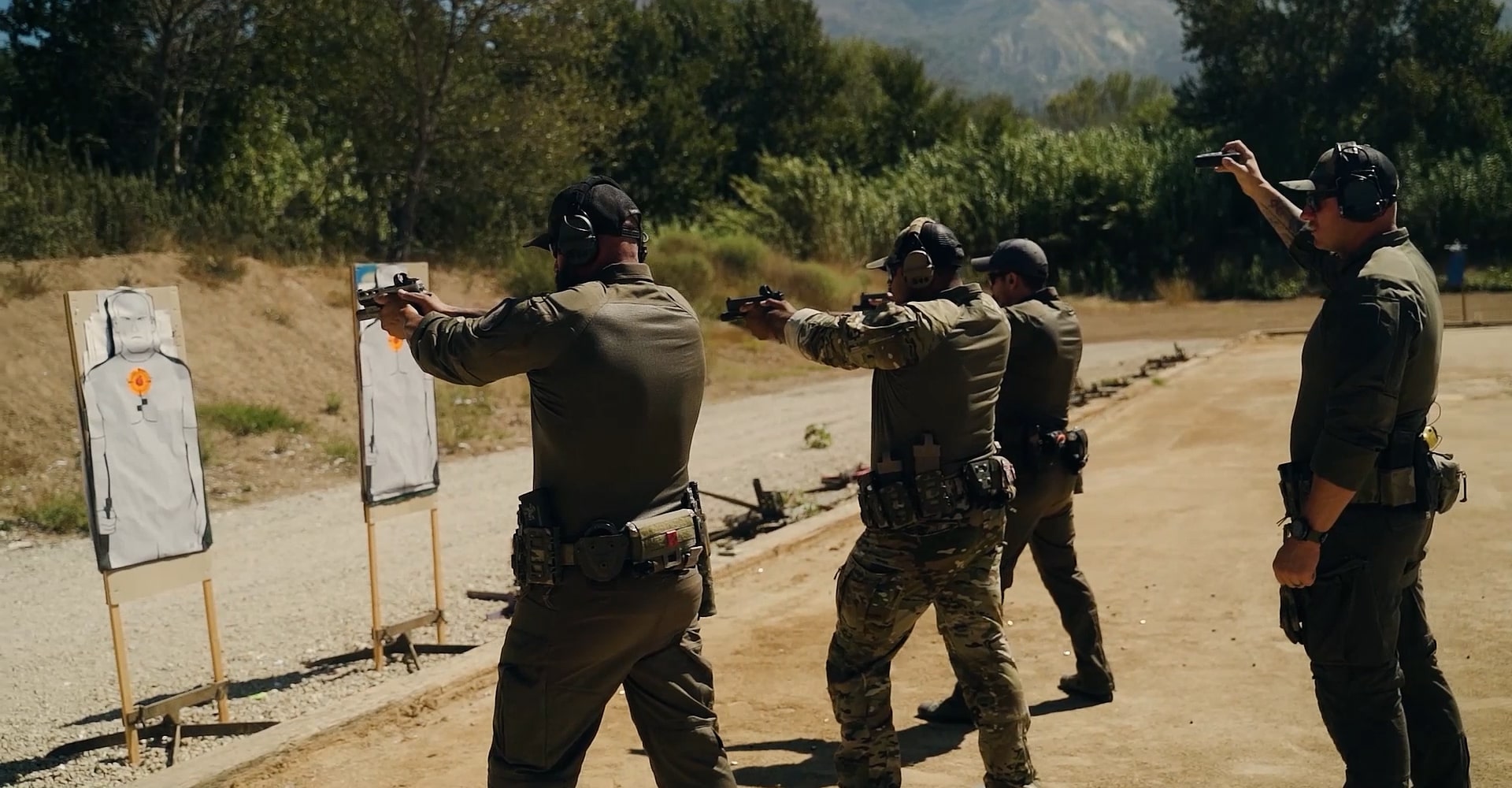
Adapting When Things Don’t Go to Plan
Even in well-prepared shooting sport competitions, things can—and will—go wrong.
Maybe your gear malfunctions. Maybe the weather turns. Maybe you just blank mid-stage. The best shooters don’t panic; they adapt.
That adaptability doesn’t happen overnight. It comes from experience—seeing enough weird, uncomfortable, or unexpected things that you no longer freeze when one shows up mid-competition.
You learn to troubleshoot quickly, adjust your strategy on the fly, and stay composed no matter what’s happening around you. It’s not just a skill. It’s part of the mindset.
The Value of Feedback in the Sport Shooting Community
If you’re not getting feedback, you’re leaving progress on the table.
That could be from a coach, a squad mate, or just your match results. Either way, having someone else spot what you might be missing is a massive asset.
Local sports shooting matches are especially valuable. They give you real-time pressure, a chance to test your prep, and often a community that’s more than willing to share tips or suggestions.
Learning in isolation works—up to a point. But real growth happens faster when you surround yourself with people who are trying to get better too.
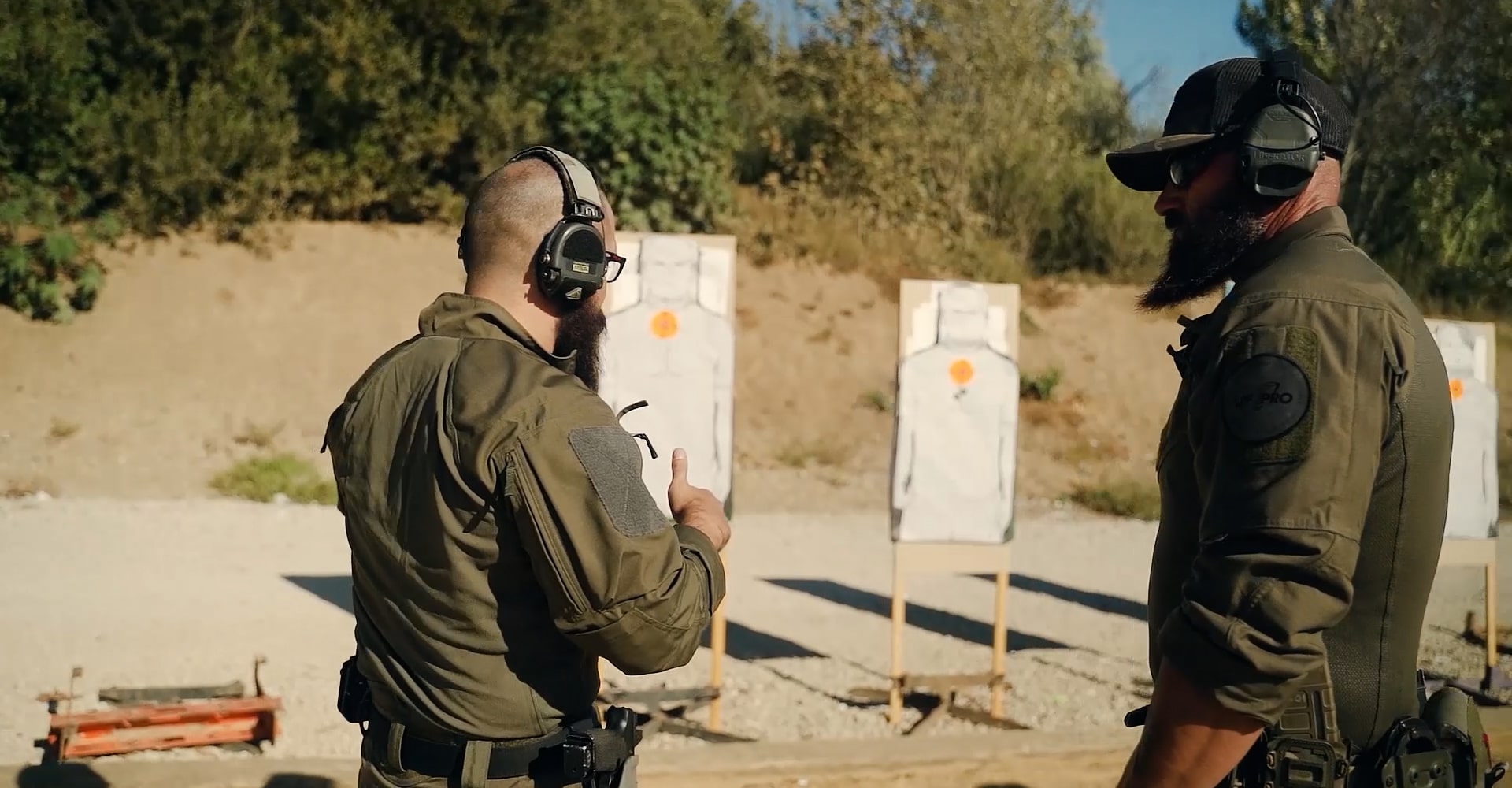
Sustainable Progress > Quick Wins
Shooting is a long game.
Yes, it's fun to chase PRs and personal bests. But the shooters who stick around and continue improving year after year are the ones who take a steady, structured approach.
They set goals. They track performance. And they don’t panic when they hit a plateau.
Some days, you’ll feel stuck. That’s normal. Use that time to re-evaluate. Maybe your training plan needs adjusting. Maybe it’s time to revisit the basics again (spoiler: it usually is). Either way, the solution isn’t to chase shiny distractions—it’s to keep doing the right work, consistently.
What Gives You the Real Edge in Sport Shooting?
It’s not just talent. It’s not just time. And it’s definitely not just gear.
The real edge in competitive sport shooting comes from:
- A clear, steady mindset under pressure
- Strong fundamentals that hold up under stress
- Smart, focused preparation
- The ability to adapt without falling apart
- Honest feedback—and a willingness to listen to it
- A long-term commitment to getting better, one round at a time

